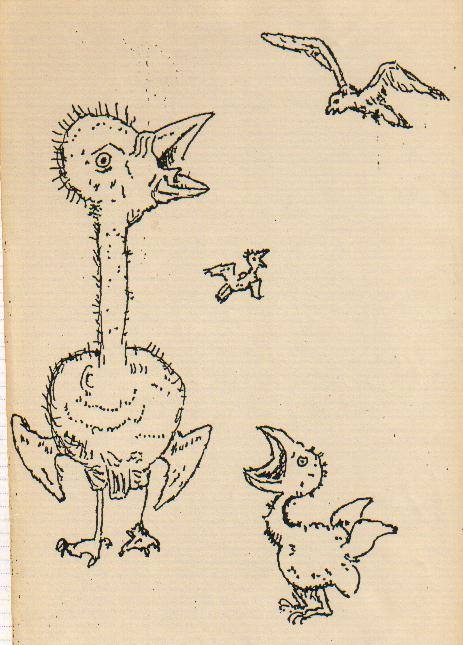Notes on the Death of Zarathustra
Aphorisms, maxims and apophthegms,
gathered over forty years
"What follows may very well be an act of the most extraordinary intellectual impertinence. All philosophers, by the very nature of their work, are arrogant and conceited creatures; for in venturing an explanation of the workings of the universe they are presuming to have transcended the ignorance which is our common lot: and in so doing they are declaring themselves to be akin to gods. I am no philosopher. I claim no originality of thought, and even where I may have come upon an originality of language I am all too conscious that my variations endlessly repeat themselves. Nor do I offer in these pages a composite or definitive opinion on the workings of the universe. Indeed, as will become immediately apparent, the most striking feature of this book is its absence of a consistent epistemology, its surfeit of self-contradictions. The aphorisms which follow were written - the tongue firmly embedded in the cheek - not out of a desire to explain the world, but out of a simple love of interesting ideas and the joy of finding suitable words to express them.
"In truth, even ideas have never held any lasting interest for me. I am more emotional than intellectual, perhaps. I take hold of ideas and play with them with all the enthusiasm of a child intrigued by a new toy, aware that I'll discard them as soon as I've broken or exhausted them, or sooner, should I find a better toy. But I can't deny any of them, for each may contain a grain of truth, even while none conveys the whole Truth. Nor is this mere dilettantism, but a kind of intellectual bohemianism bred out of the most rigorous scepticism. Indeed, just as with women and landscapes, I always adhere closest to those ideas in which I find, not the expression of my opinion or the bolstering of my prejudices, but the most intense aesthetic pleasure.
"Written as they came to me, starting in 1973, and in many cases culled from other of my books, they are presented in no particular order, supplemented by the aphorisms of those other writers whose books I have read and enjoyed during the same period. I recommend them to my reader with the same advice that Durrell's Pursewarden offered his thoughts to Brother Ass in 'The Alexandria Quartet': 'One to be taken from time to time as required, and allowed to dissolve slowly in the mind.'"
David Prashker
A small flavour of the many hundreds...
It’s not the text so much as its inferences and implications - its interpretability - that one must struggle to control. All great writing is done between the lines.
Perhaps the ultimate tragedy, certainly the twentieth century's tragedy, for hundreds of millions of people: to dedicate one's whole life in the pursuit of an ideal that one is told is the supreme good; and then to discover when it’s too late that the good was in fact bad, and the ideal in fact evil.
Q: What do you want to be when you grow up?
A: Myself.
Talking to God is prayer. Hearing God answer is schizophrenia.
To be an artist one must learn both to suffer creatively and to live in a world without garrets.
Those who would like to see Macbeth thoroughly whipped as a punishment for his crimes are making a serious misjudgement. In such cases it would be better simply to lock the miscreant in a darkened room and leave him to torture himself.
Art is the process of making sense of Life. Criticism that of making sense of Art.
Two attitudes of the rebel: crime and revolution. The former acts against the world's morality, the latter against its immorality.
If the conditions were right for the coming of the Messiah, then necessarily the Messiah would already be here.
|
 |
